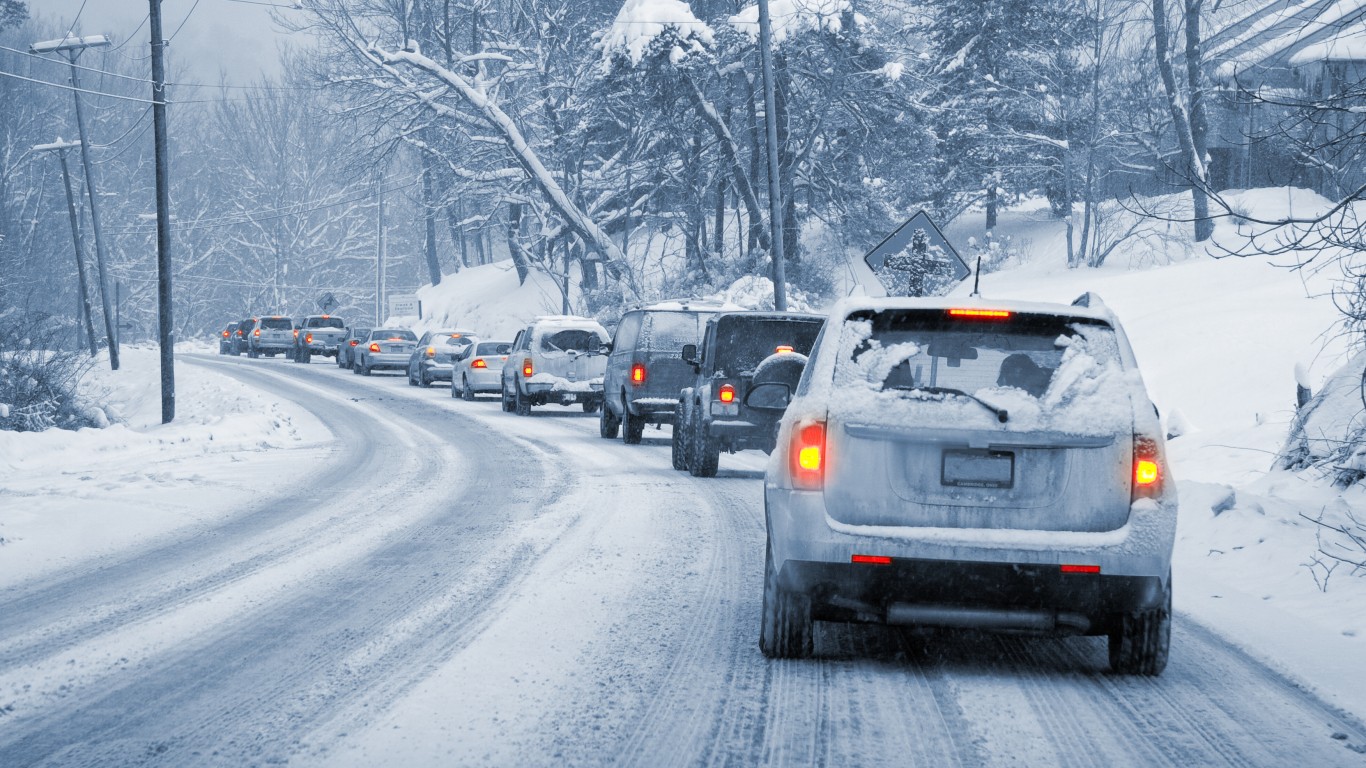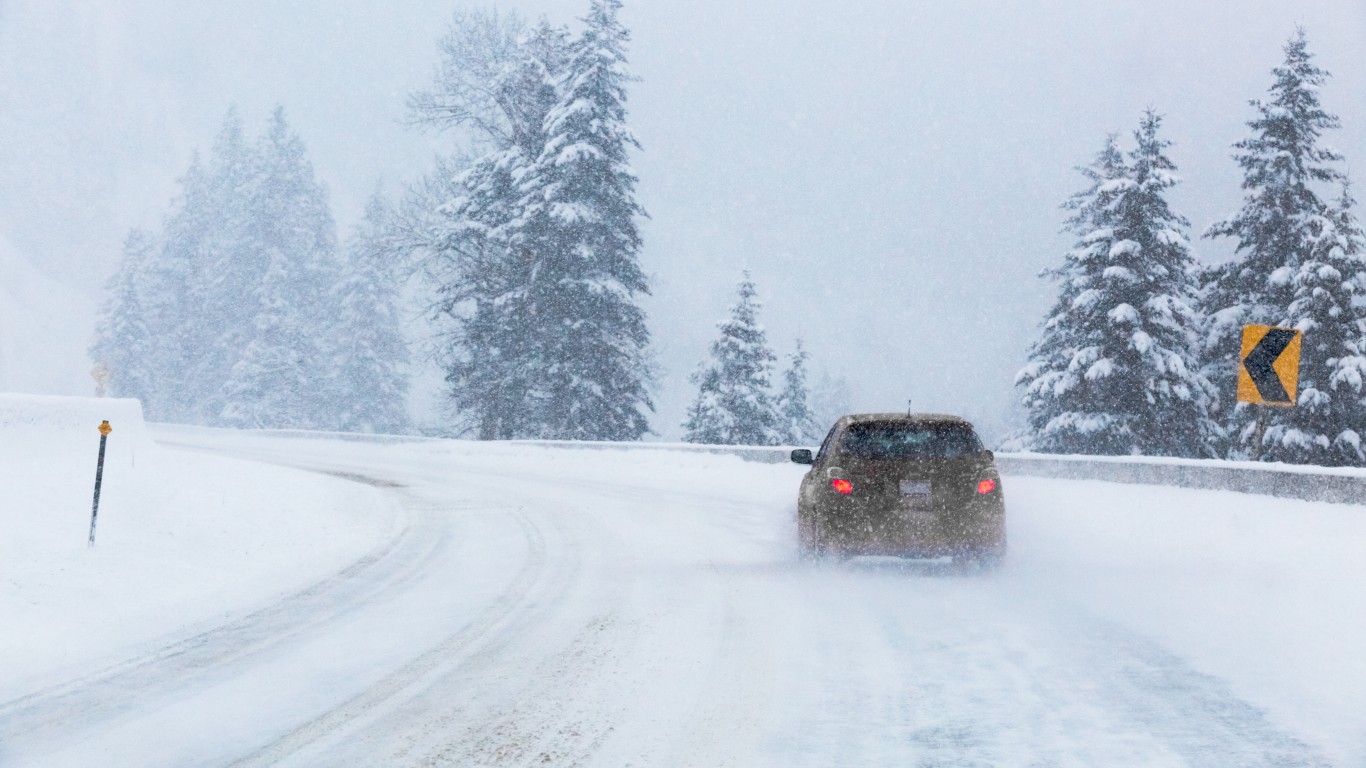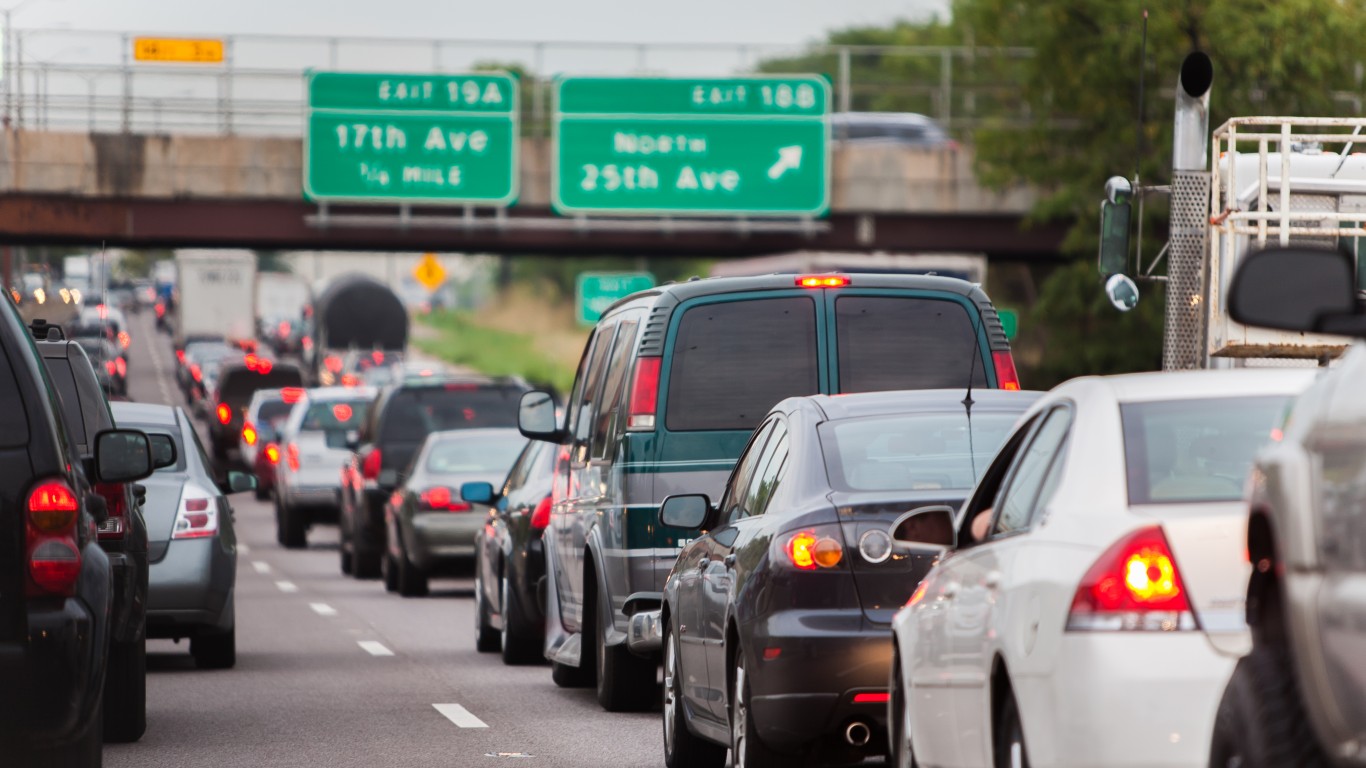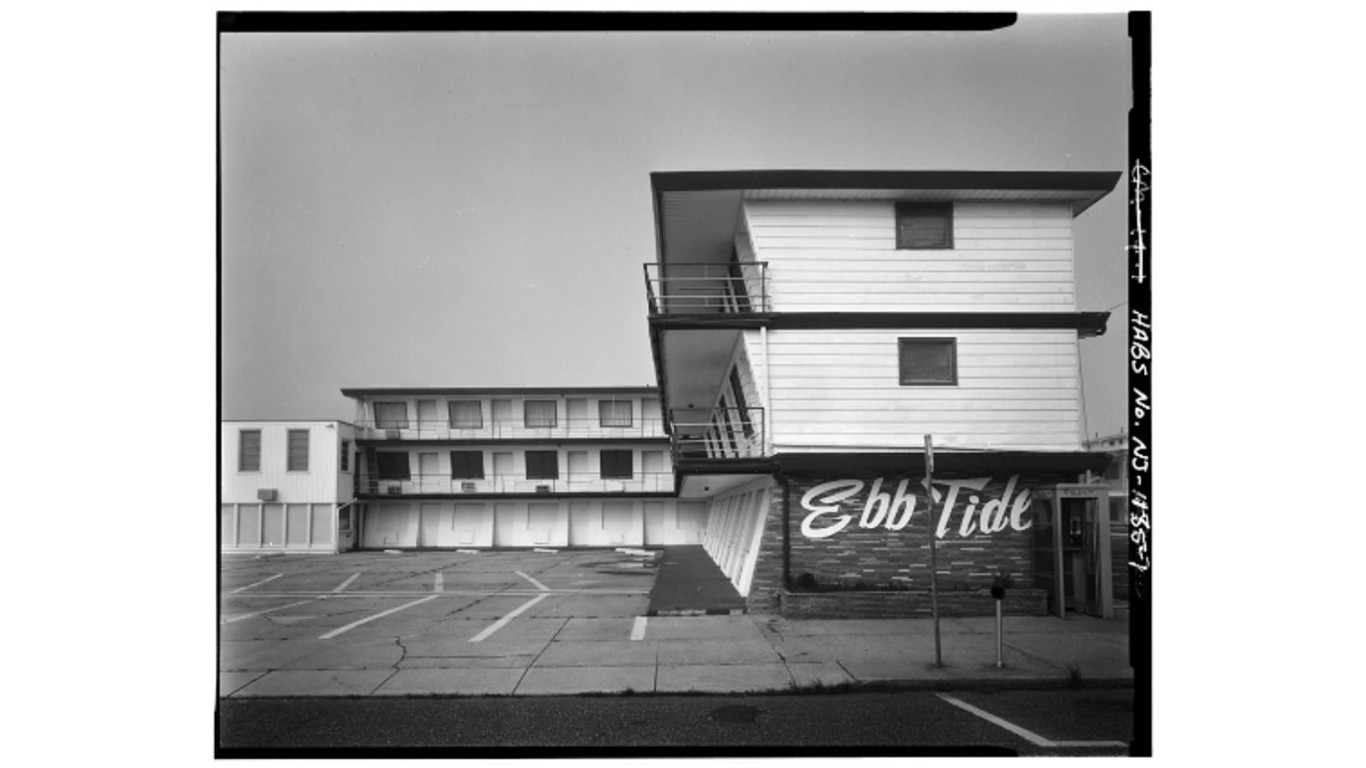
As we enter the spring and summer after that, people are going to be looking to go places and do things. International travel is still problematic because we’re not done with the pandemic just yet, but domestic travel is picking up and what could be more American than a road trip? It’s a great way to see the country and has inspired whole genres of literature and movies.
You need two things for a road trip — a car and a place to stay, preferably somewhere affordable and not far from the highway. With that in mind, 24/7 Tempo has compiled a list of some classic American motels and inns, from days past and present.
Motels are literally made for road trips — motel is a contraction of motor and hotel, i.e. a place designed for motorists. The world’s first was in San Luis Obispo, California, and it’s on our list.
Motels typically have certain features in common: a single building of connected rooms whose doors face a parking lot. They are often individually owned, though chains do exist. Motels peaked in popularity in the 1960s, when they faced competition from the big hotel chains and interstate highways bypassed small towns.
Some of the old motels and inns on our list didn’t survive and were converted to other uses or were even demolished.
Fortunately, quite a few classics still survive and can be visited. For a look at some other American treasures, here are the 30 most popular national monuments.
Click here to see classic images of motels and inns from past and present
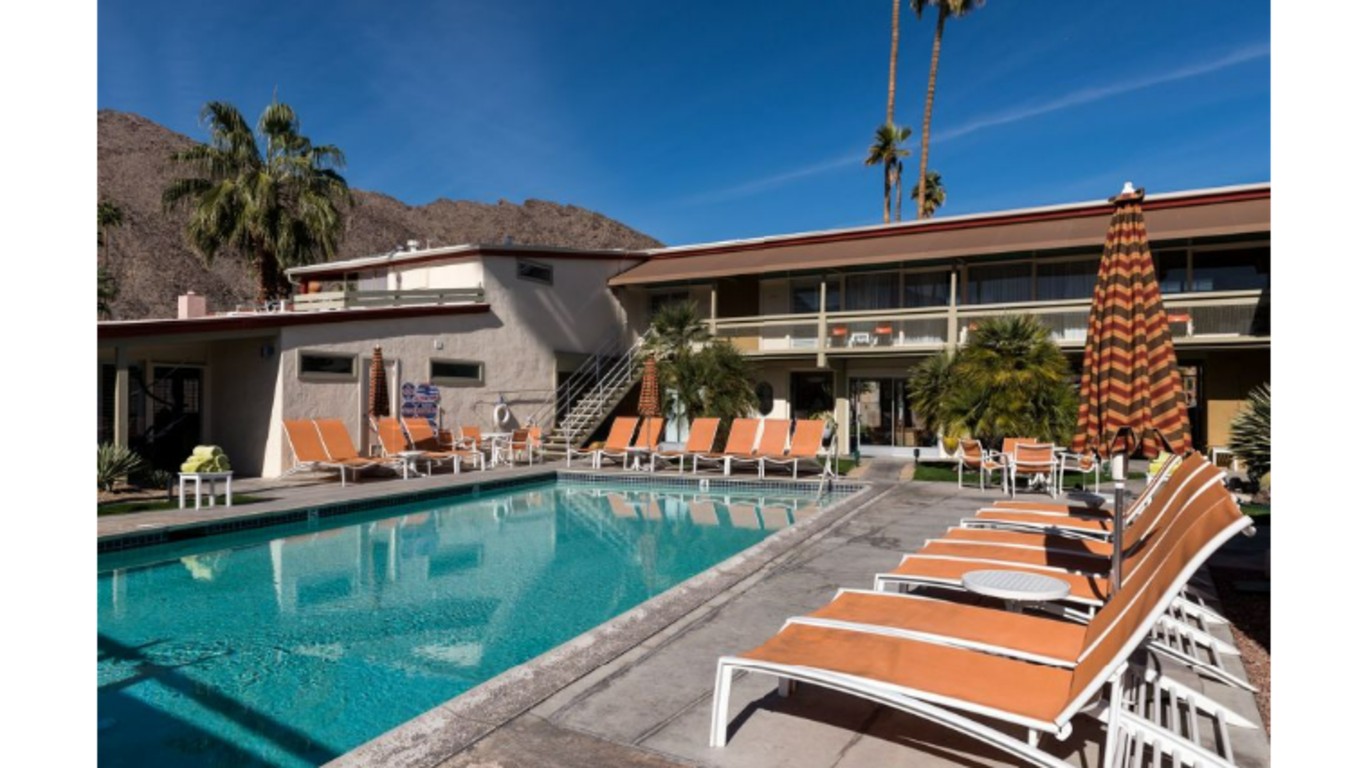
Del Marcos Hotel, Palm Springs, California
The adults-only Del Marcos Hotel is an attractive stone and redwood building dating from 1947, with a saltwater pool in the courtyard. It’s close to downtown Palm Springs, which boasts the world’s largest concentration of preserved mid-century modern architecture.
[in-text-ad]
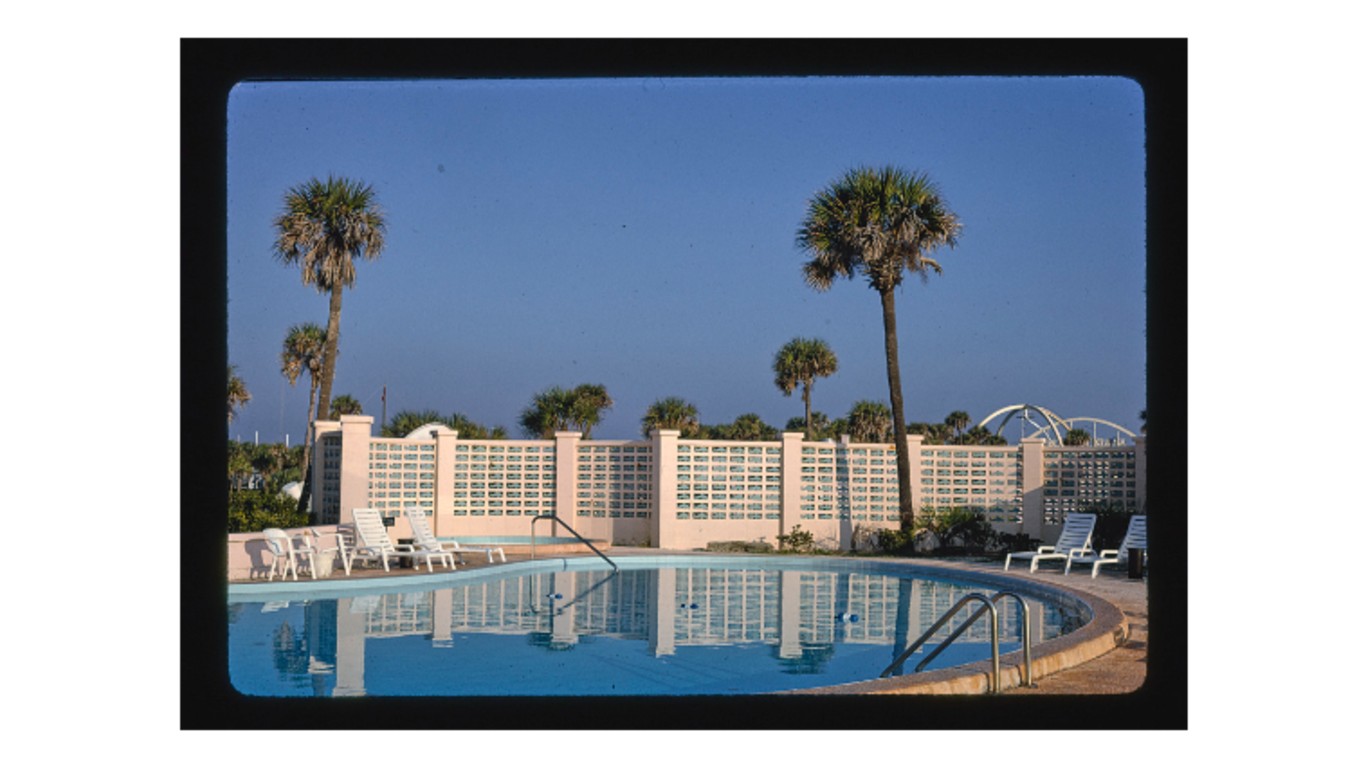
Marineland Motel, Marineland, Florida
Marineland, not far from St. Augustine, Florida, was originally conceived of in the 1930s as an aquarium and place to film marine life. It became a hugely popular attraction, and expanded to include a restaurant, motel, and the Moby Diсk Lounge, which was frequented by writers like Ernest Hemingway and John Dos Passos. With the arrival of SeaWorld and Walt Disney World in the 1970s — followed by new ownership and hurricanes — Marineland began to decline, and in 2003 much of it was demolished.
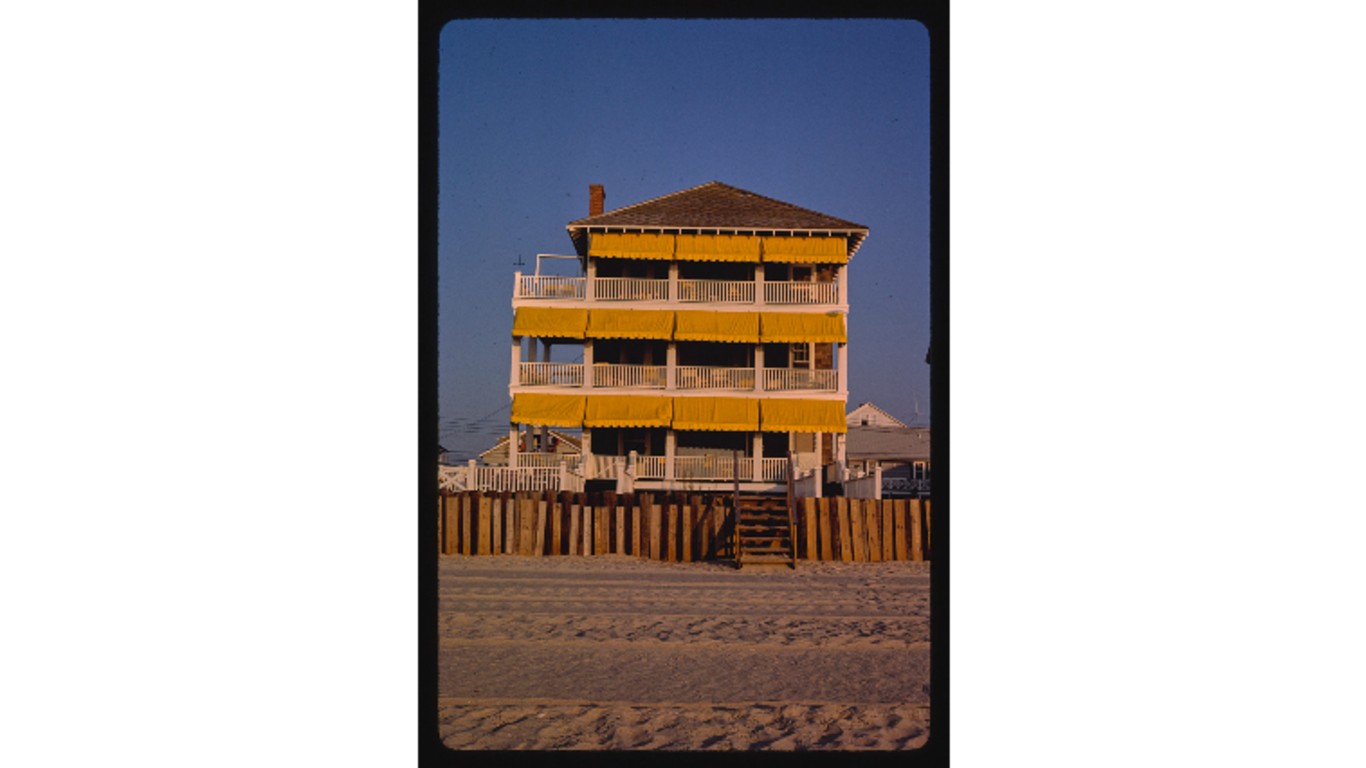
Yellow Hotel, Ocean City, Maryland
Elegant old hotels, like this one with yellow awnings to shade its guests, once lined the beachfront of Ocean City, Maryland. Today only a few of them still remain, mostly replaced by high-rise condos or modern chain hotels. Ocean City boomed at the same time motels generally did, thanks to the completion of the Chesapeake Bay Bridge in 1952 and the Chesapeake Bay Bridge-Tunnel in 1964. The town has miles of beaches, a boardwalk, and Trimper’s Rides, an amusement park.
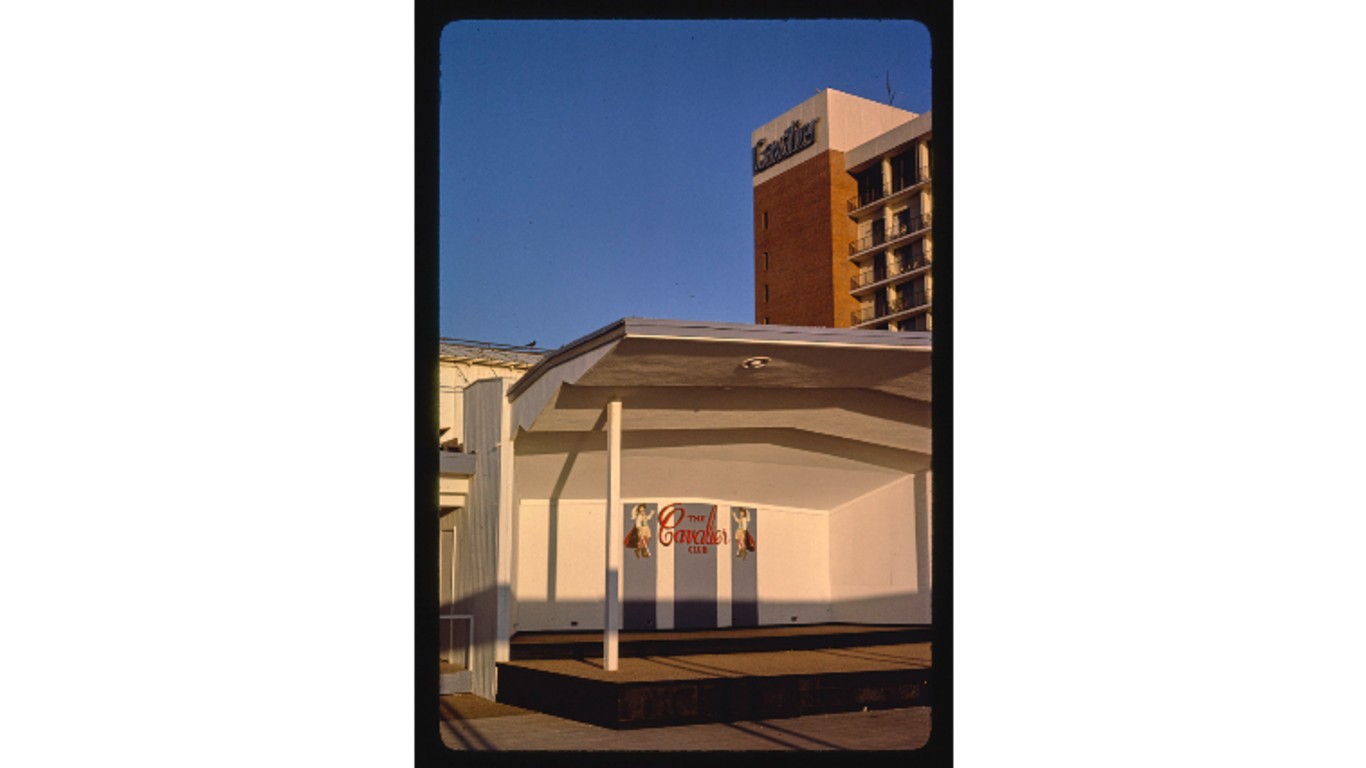
Cavalier Hotel, Virginia Beach, Virginia
The landmark Y-shaped Cavalier Hotel originally opened in 1927. It hosted presidents Dwight Eisenhower, Herbert Hoover, John F. Kennedy, and Lyndon Johnson, and celebrities such as F. Scott Fitzgerald and Judy Garland. It was commandeered by the United States Navy during World War II and then hit hard times. It was even threatened with demolition, but reopened in 2018 after an $85 million renovation.
[in-text-ad-2]
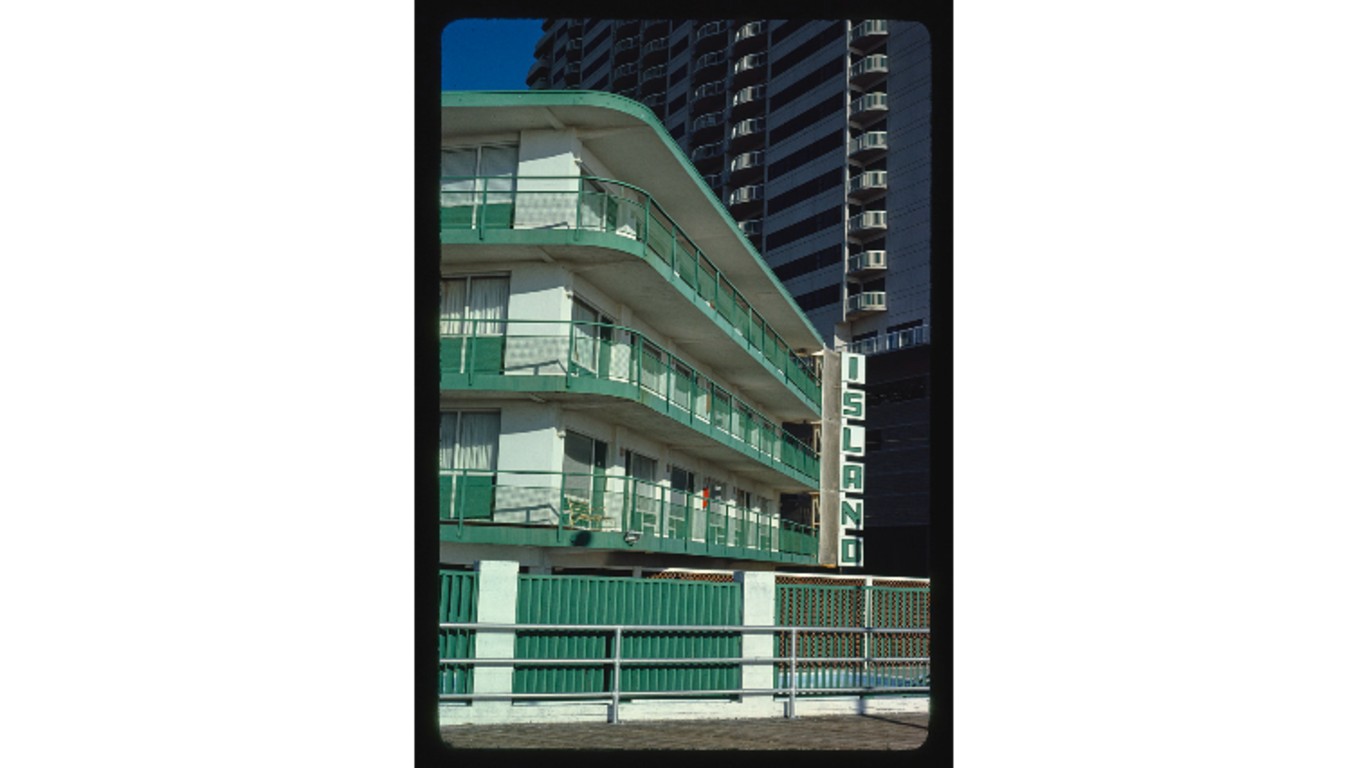
Island Motel, Atlantic City, New Jersey
The Island Motel was an Art Deco-style building with a distinctive “Island” sign. Small motels in Atlantic City faced competition from giant hotels that went up during a building boom in the 1920 and 1930s. The city started to slide after World War II, with economic decline accompanied by a rise in poverty and crime. Many of the grand and not-so-grand hotels were demolished in the 1970s and 1980s, to be replaced by casinos when gambling was legalized.
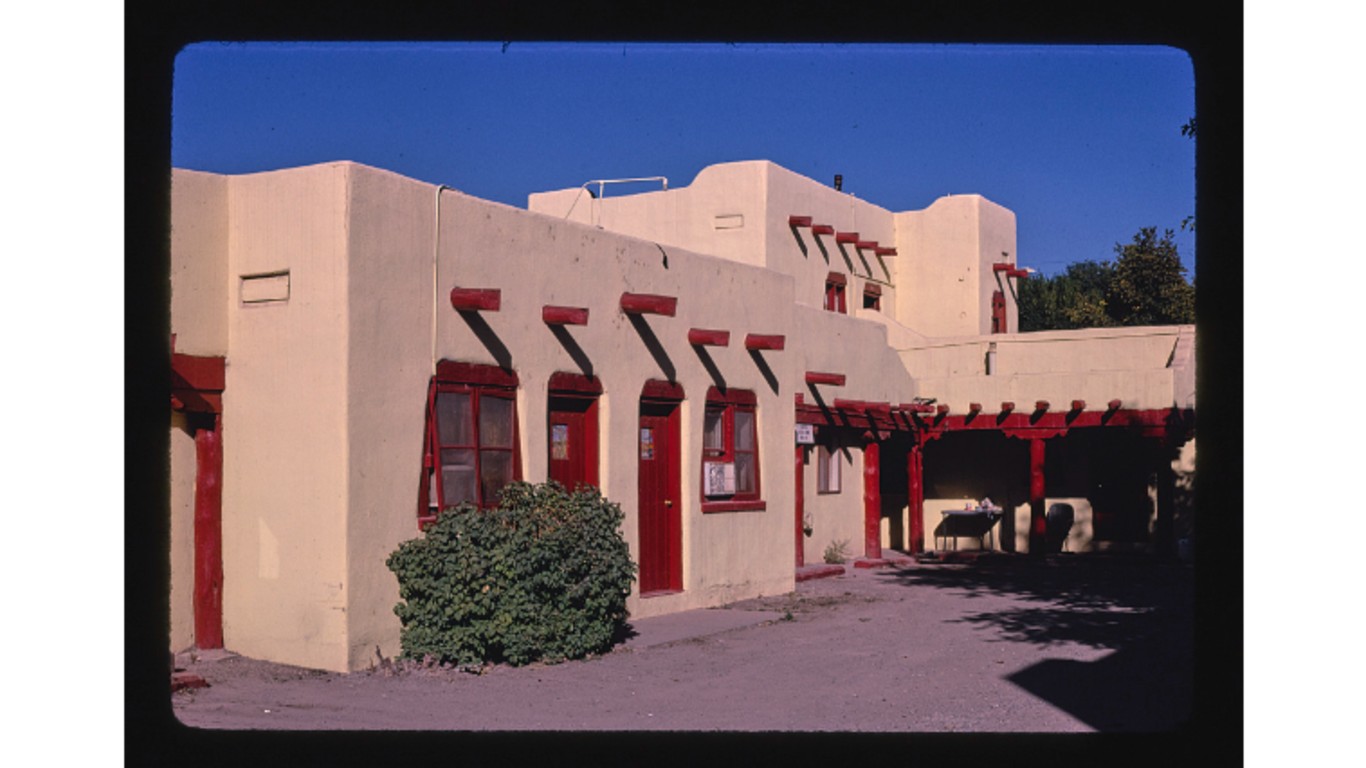
Coronado Motel, Pueblo, Colorado
The 1940s Coronado Motel in Pueblo was included in the Green Book of establishments that were welcoming to African Americans during the segregation era and is now in the National Register of Historic Places. It was also featured in the 1983 Chevy Chase movie “National Lampoon’s Vacation.”
[in-text-ad]
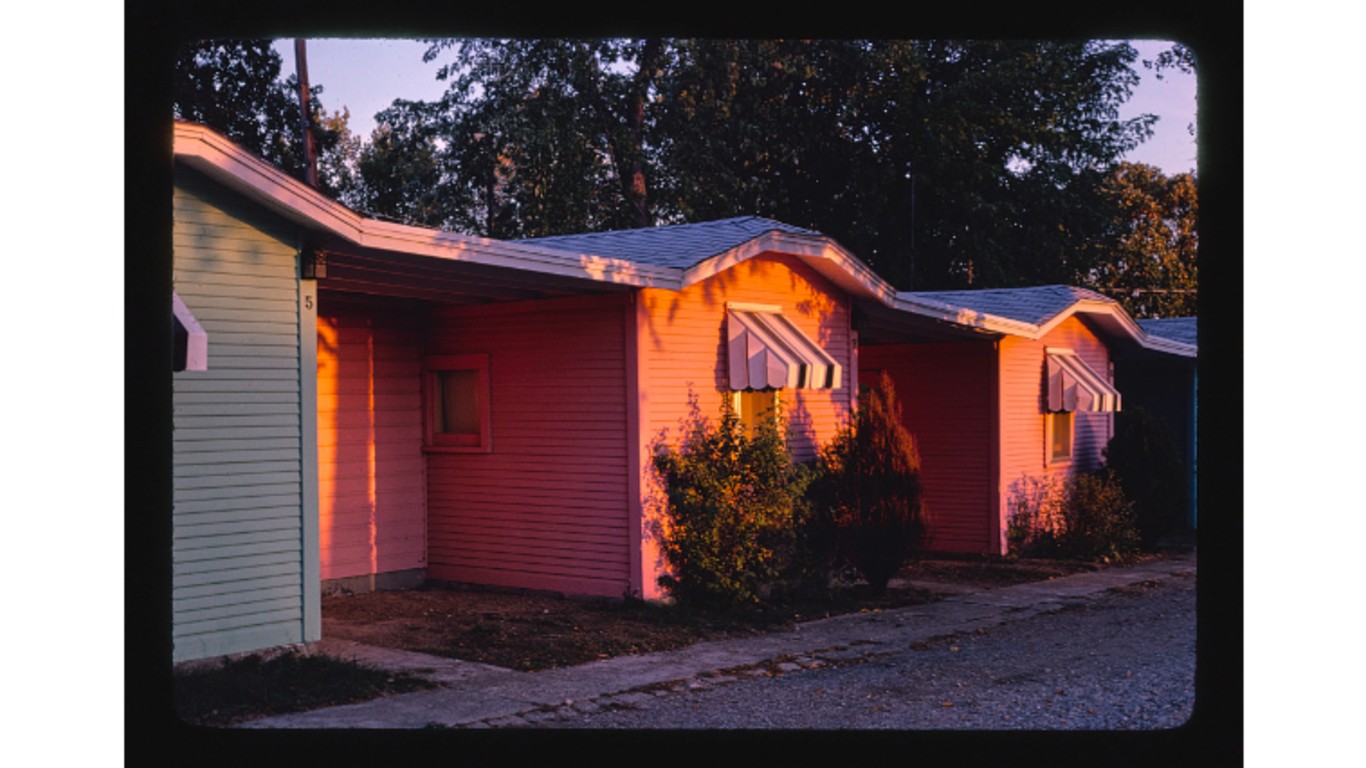
Eldon Motel, Eldon, Missouri
The Randles Court Motel in Eldon was built in the early 1930s. It was originally known as the Boots Tavern and Boots Cottage Court and was taken over by Helen Randles in 1947. Part of the property was damaged by fire in 2017 and it took another hit from a tornado in 2019.
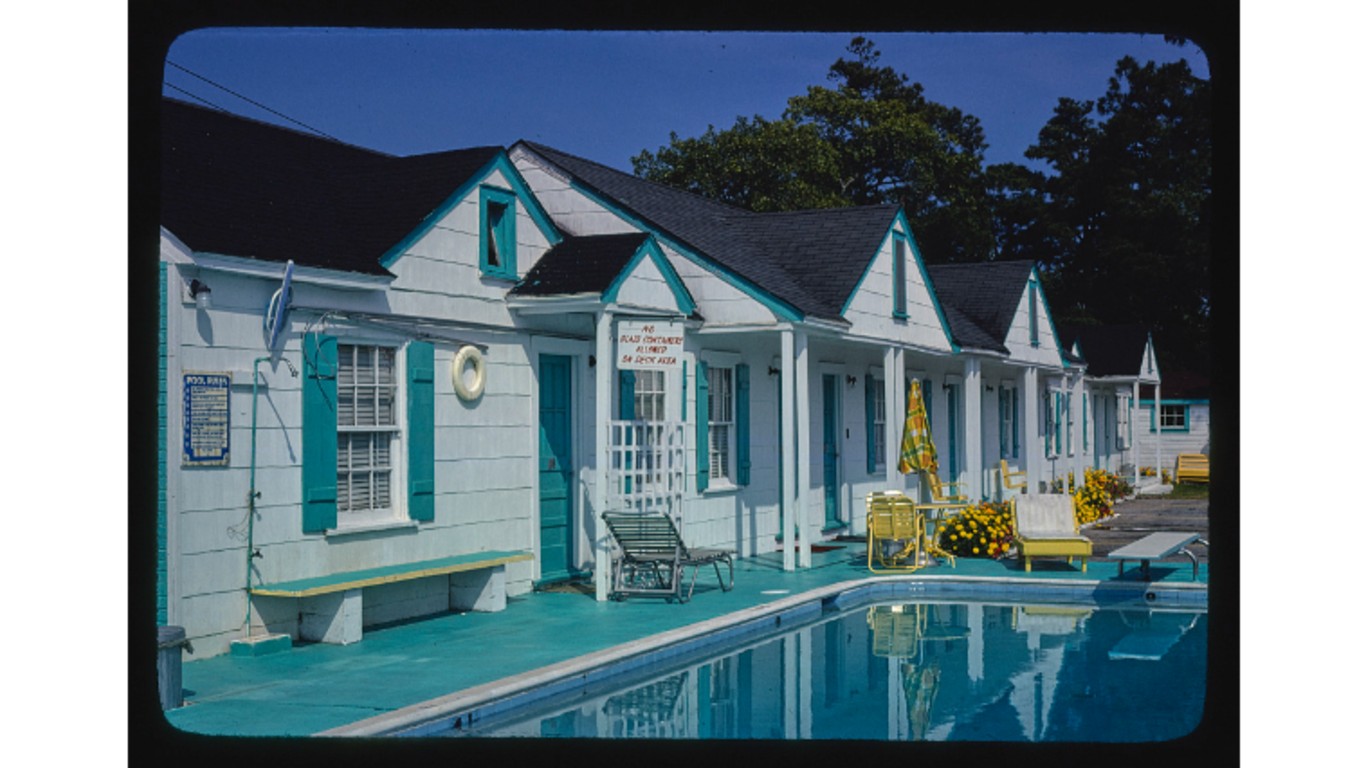
The Smith Motor Court, Myrtle Beach, South Carolina
Smith’s Motor Court in Myrtle Beach had a classic layout of single-story adjoining rooms facing a courtyard. The city has boomed in recent years but has lost some of its treasures, including Smith’s and the Chesterfield Inn and the Myrtle Beach Pavilion, which were demolished. It still has the Gay Dolphin Gift Cove on the Boardwalk, which claims to be the “nation’s largest gift shop.”
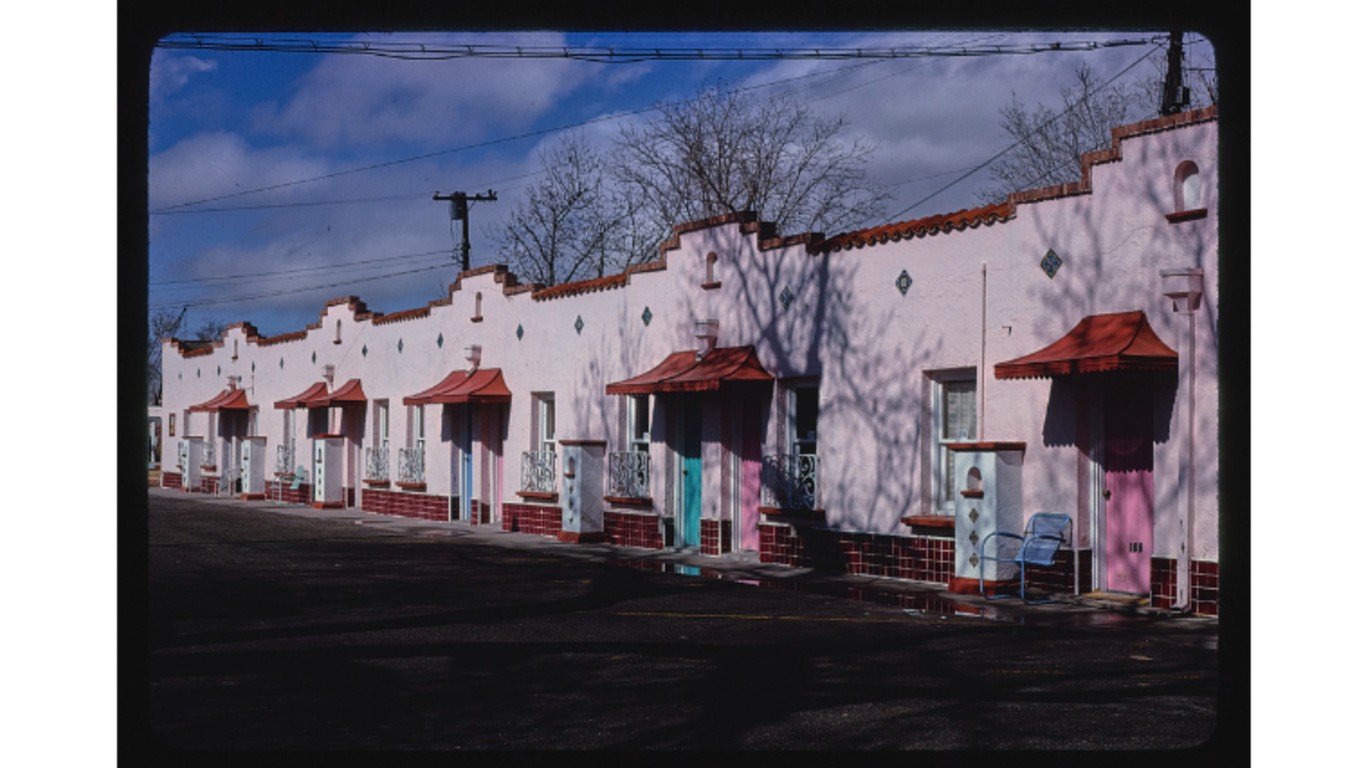
Del Camino Motel, El Paso, Texas
The 1930s-era, mission-style Del Camino was said to have been the second-largest motel in the world at one time. It had 275 rooms and included a dining room, coffee shop, and swimming pool. At one point it even had a bullfighting museum. The building was condemned and demolished in 1993.
[in-text-ad-2]
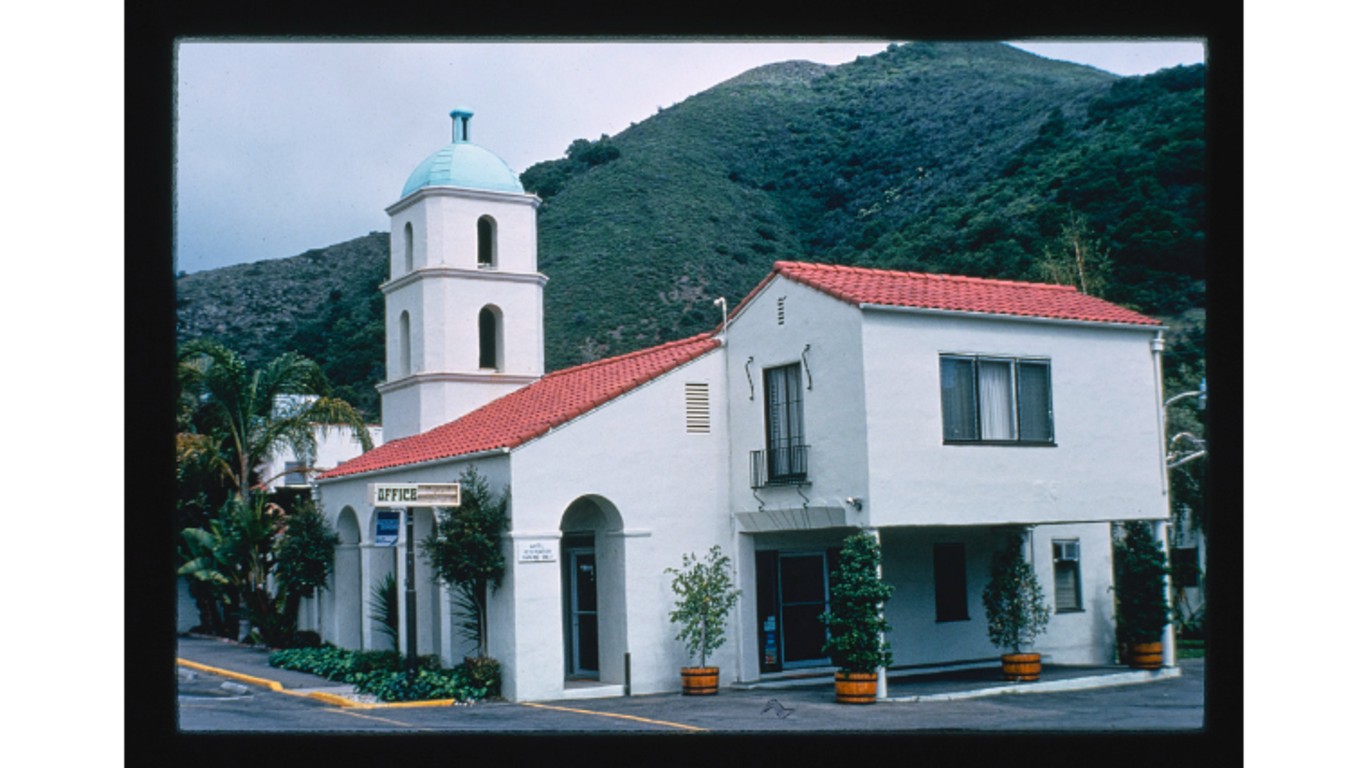
Motel Inn, San Luis Obispo, California
The Motel Inn in San Luis Obispo is said to have been the world’s first motel. It opened in 1925 and closed in 1991. The building is now the administrative office for the Apple Farm Inn next door.
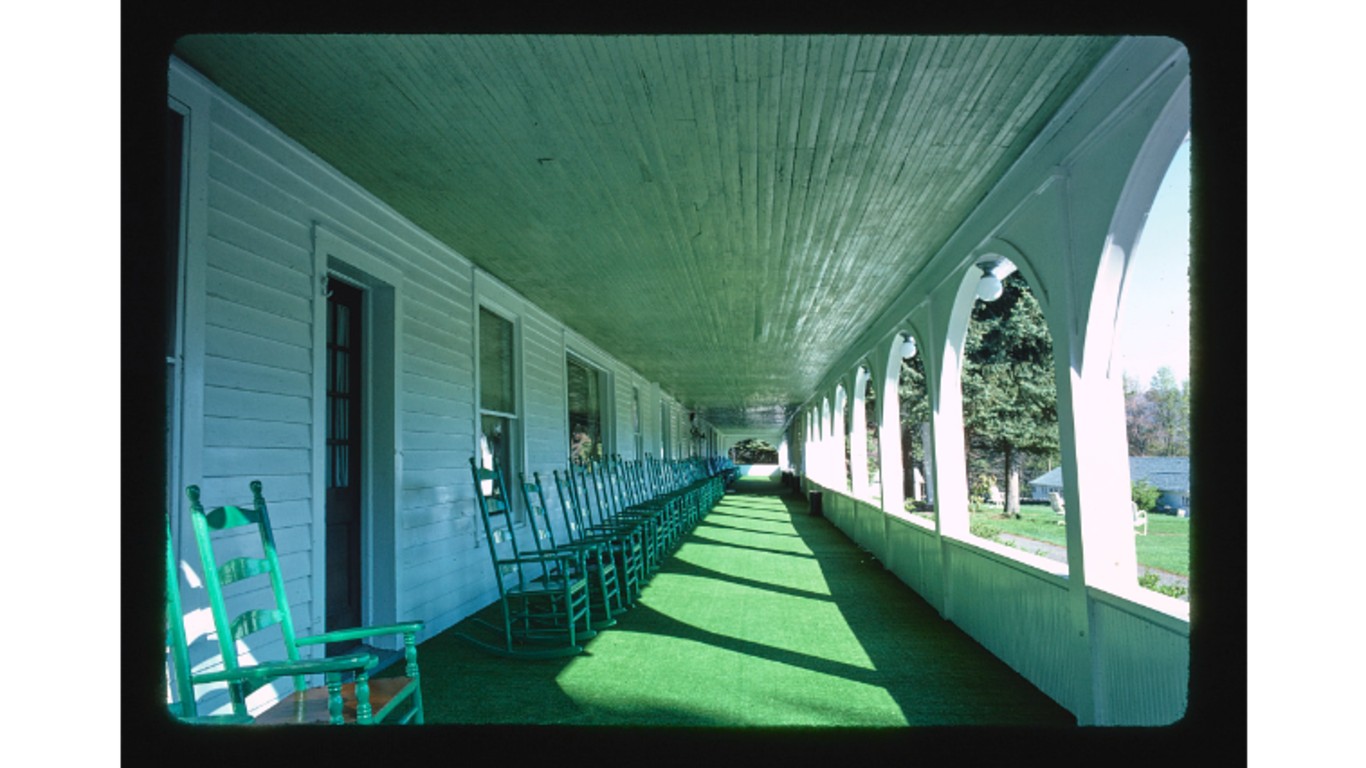
Campbell Inn, Roscoe, New York
Built at the end of the 19th century, the Campbell Inn was one of the classic inns of the Catskill Mountains. The Catskills were a popular summer destination before the age of air conditioning and affordable jet travel. Roscoe also has its own claim to fame as “Trout Town USA,” with five of America’s top trout streams nearby, and the Campbell Inn was popular with anglers.
[in-text-ad]
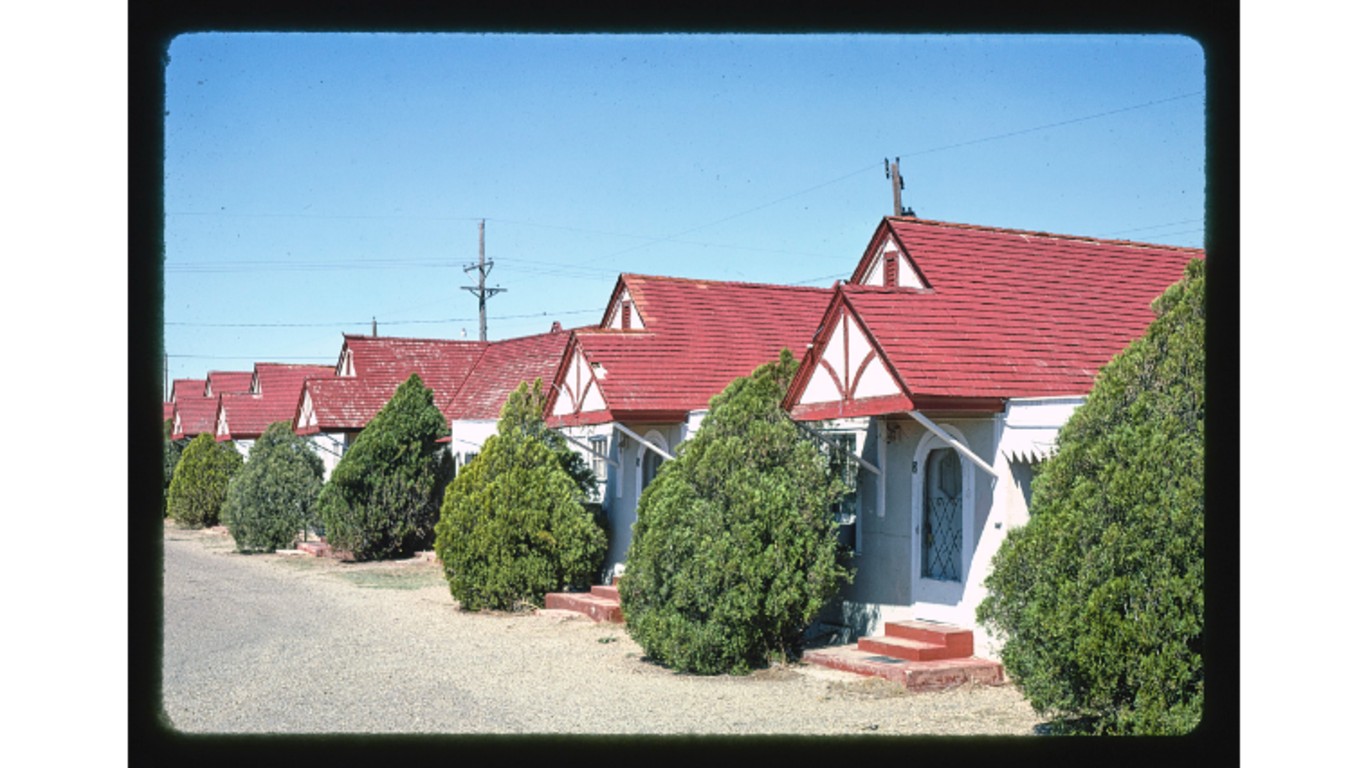
English Motel, Amarillo, Texas
The English Motel in Amarillo served travelers on the famed Route 66. Also known as the Will Rogers Highway, the Main Street of America, and the Mother Road, Route 66 was established in 1926 and was one of the original components of the U.S. Highway System. It ran from Chicago to Santa Monica. The English Motel closed in the 1990s.
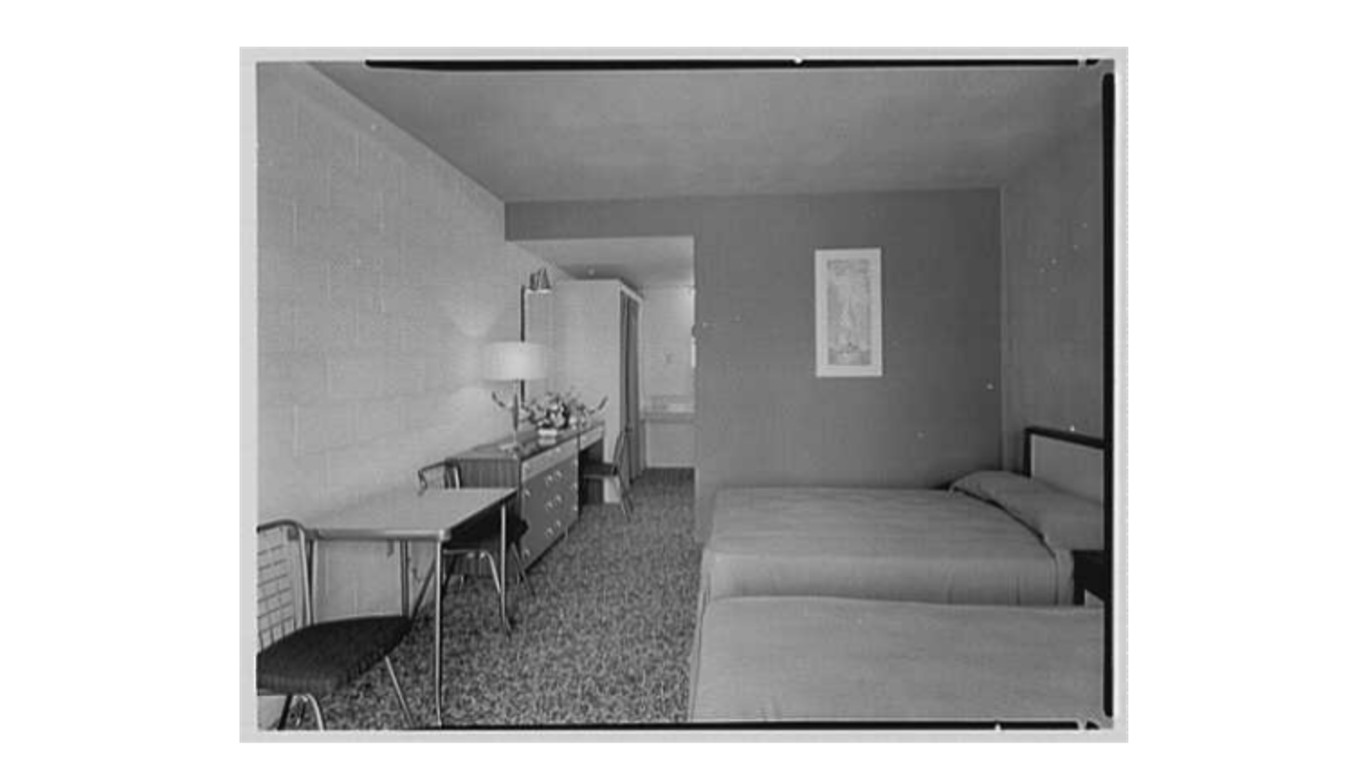
Voyager Motel, Biscayne Blvd. & 104th St., North Miami, Florida.
The Voyager Motel started well. Designed by the same architect who did Miami Beach’s famous Fontainebleau Hotel, it opened in 1957 and was described as a nice spot with nice people. Unfortunately, it hit hard times and became a haven for criminals, and was eventually converted to a senior citizen’s center in the 1980s.

Ebb Tide Motel, 5711 Atlantic Avenue, Wildwood, Cape May County, NJ
The Ebb Tide was one of the earliest motels in Wildwood, the famous resort city on the New Jersey coast. Wildwood’s attractions include the boardwalk, which is packed with eateries, shops, waterparks and thrill rides, and the Doo Wop Experience museum, with 1950s and 1960s artifacts such as neon signs.
Travel Cards Are Getting Too Good To Ignore (sponsored)
Credit card companies are pulling out all the stops, with the issuers are offering insane travel rewards and perks.
We’re talking huge sign-up bonuses, points on every purchase, and benefits like lounge access, travel credits, and free hotel nights. For travelers, these rewards can add up to thousands of dollars in flights, upgrades, and luxury experiences every year.
It’s like getting paid to travel — and it’s available to qualified borrowers who know where to look.
We’ve rounded up some of the best travel credit cards on the market. Click here to see the list. Don’t miss these offers — they won’t be this good forever.
Thank you for reading! Have some feedback for us?
Contact the 24/7 Wall St. editorial team.
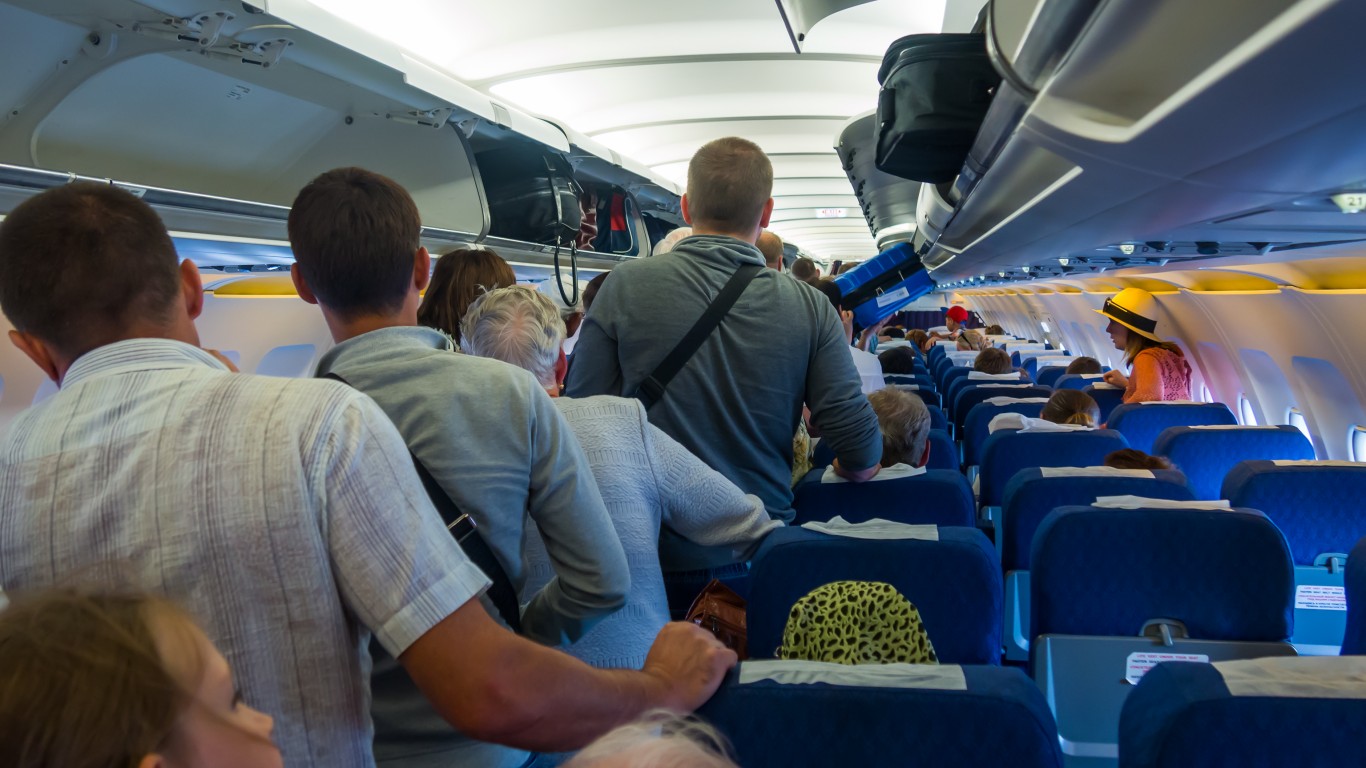 24/7 Wall St.
24/7 Wall St.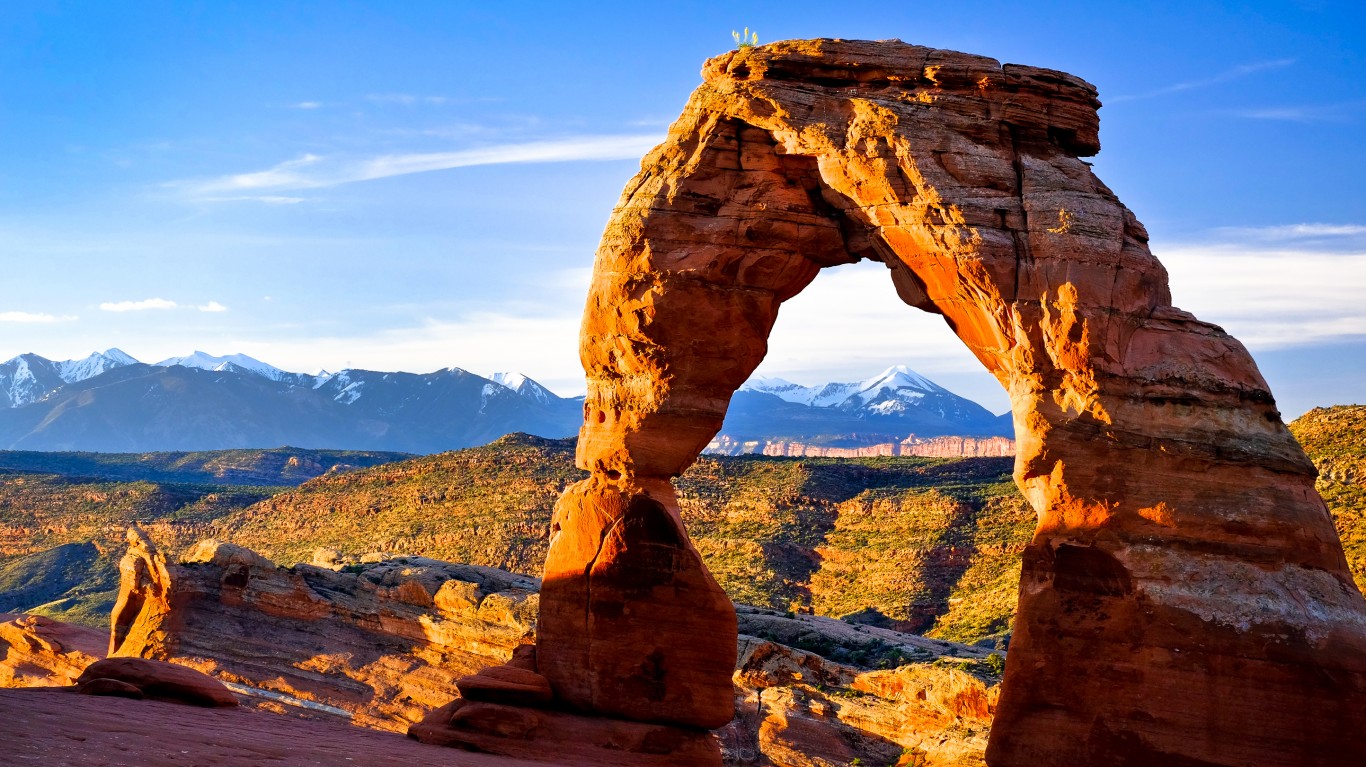 24/7 Wall St.
24/7 Wall St.